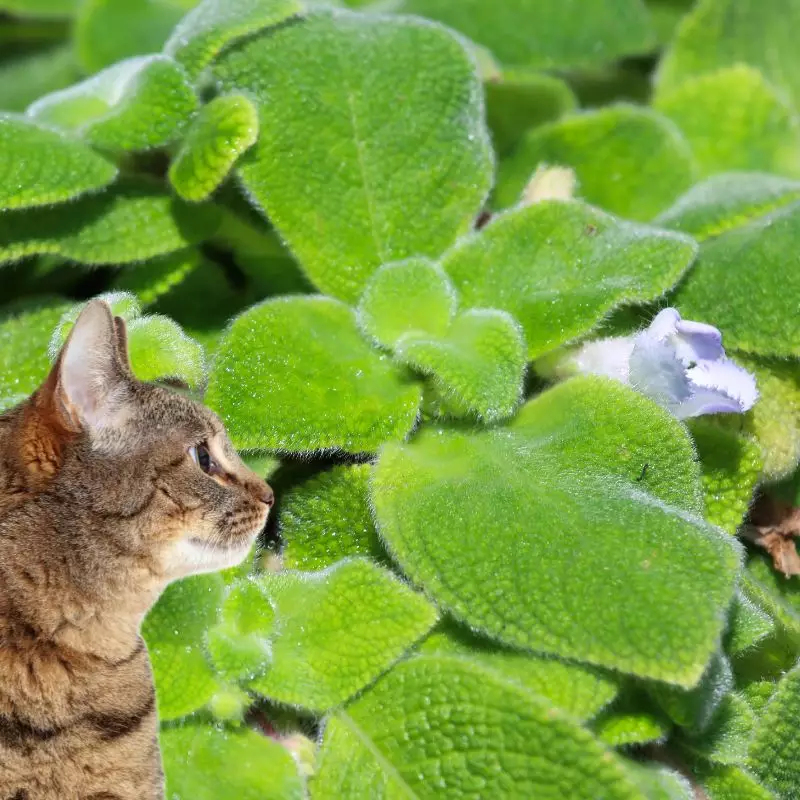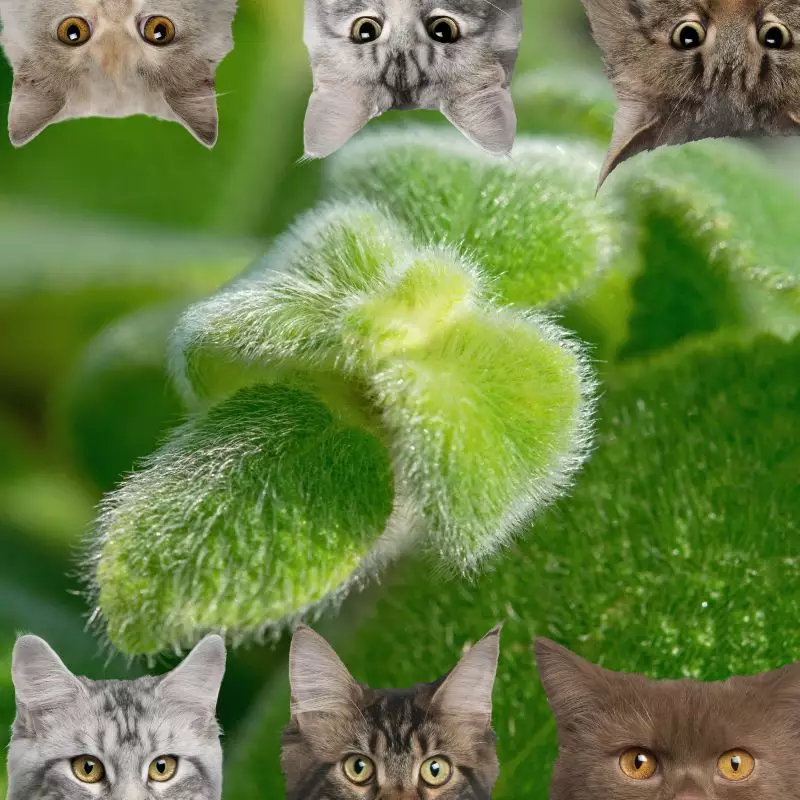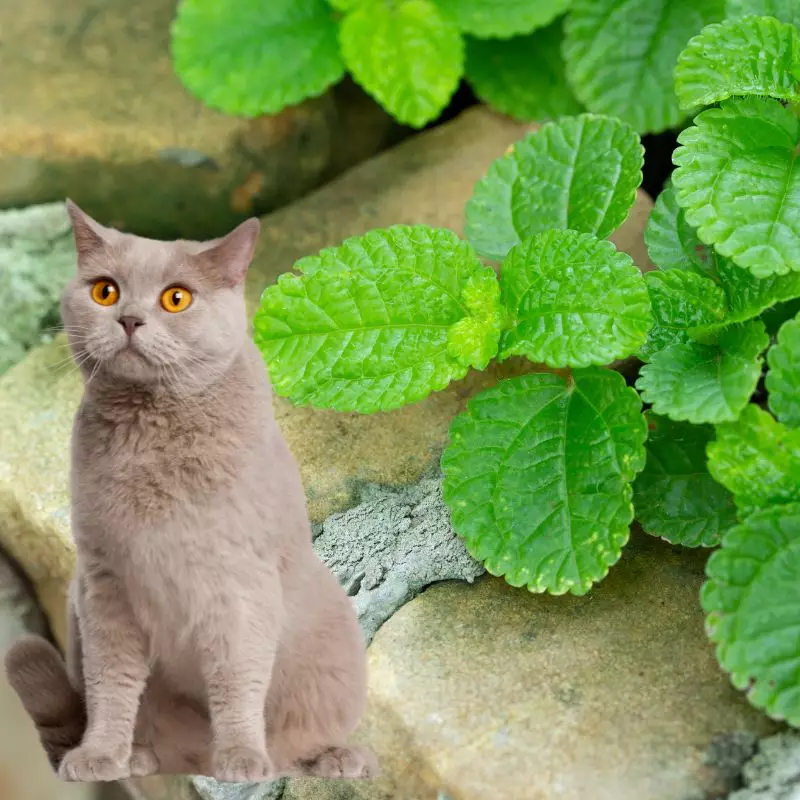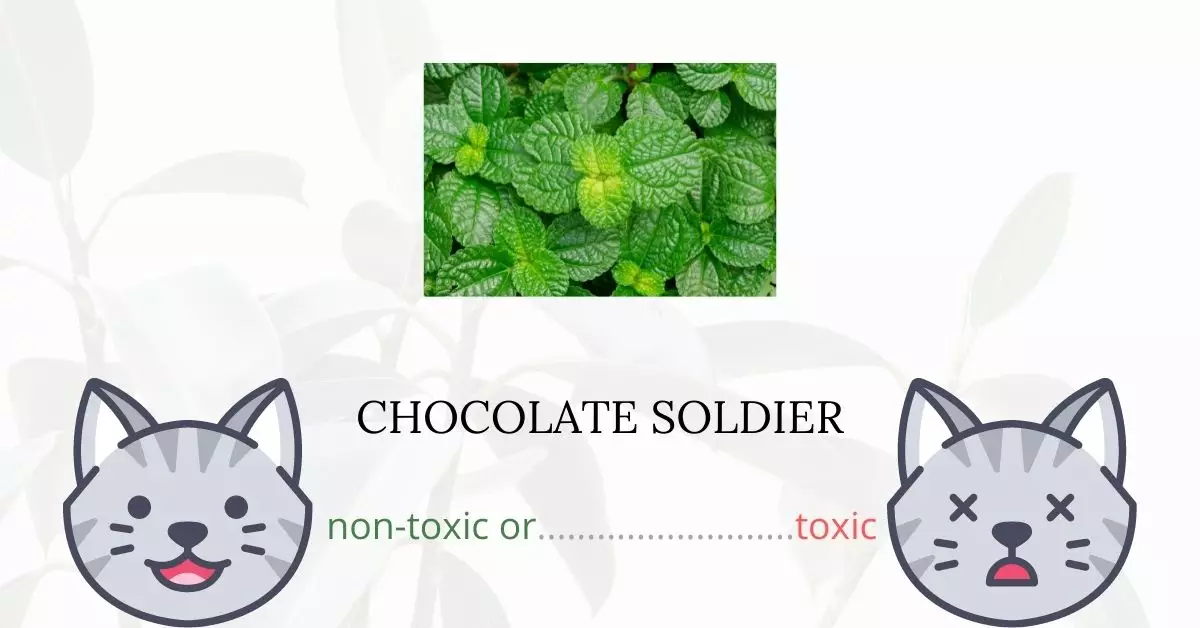To address the pressing question, chocolate soldier is not toxic for cats. It is safe to cultivate this plant in your home even if you share your space with feline companions.
This article has been penned in collaboration with a team of experienced DVMs (doctors of veterinary medicine). Through their invaluable insights, we ensure the provision of precise and contemporary data regarding the potential hazards linked with various plants, Chocolate Soldier in this instance, and their implications on cats. In addition to consulting our veterinary experts, we have also rigorously researched reputable sources such as the ASPCA and PetMD to validate our findings on each plant. It is worth noting that the American Society for the Prevention of Cruelty to Animals (ASPCA) has classified chocolate soldiers as non-toxic plants. This organization has further stated that this plant is also harmless for dogs and horses.
Can Cats Eat Chocolate Soldier?

It wouldn’t hurt your fur baby if he or she had a bite of the chocolate soldier plant. The plant is not found to contain toxic compounds that can cause toxicity in animals. However, even if it is deemed safe for cats, cat owners should still be cautious and not let their cats regularly feed on plants and vegetation.
Always remember that felines are carnivorous animals. They do not have enough enzymes to process plant matter in their stomach. As a result of overeating plants, cats can have indigestion and other digestive problems.
If you have houseplants, it is also important to remember that using commercial pesticides and fertilizers can bring harm to your cats. Ingesting a portion of your plant with chemical residues may cause poisoning in cats.
What is Chocolate Soldier?

The chocolate soldier plant is also commonly called Episcia, Lace Flower, and Lace Flower Vine. It is previously known scientifically as Episcia dianthiflora but is now known as Alsobia dianthiflora.
The chocolate soldier is one of two species in the genus Alsobia. It is a fragile perennial succulent native to Mexico, Guatemala, Costa Rica, and other Central and South American countries. Its fringed petals make it an appealing houseplant. Because it trails as it develops, it is perfect for hanging baskets.
The plant has a stoloniferous habit, which means that it produces fast-developing stems from the leaf axils. Plantlets grow at the tips of the stems and, if left alone, can form a dense mat of plants, each of which may have descended from the same parent plant. Alsobia dianthiflora is a small-leaved, compact shrub with big white, frilled blooms and many stolons.
Keeping Cats Away From Chocolate Soldier

You may love your houseplants as much as you love your felines. Thus, it is important for your to keep your plants safe from your cats’ paws.
Cats are naturally inquisitive animals. They tend to investigate around when they are bored and tend to eat plants around them when they are hungry. Keeping your cat mentally stimulated and well-fed will prevent them from getting a taste of your plants due to boredom and hunger.
Cats detest the sour smell and taste of vinegar which makes it a good deterrent for your plants. You may mix vinegar with water and spray the solution on your plants. As long as your plants are unpalatable for your cats, they will not go near them.
Plants to Avoid For Your Cats
If you are a cat owner and unsure if the plants growing in your yard are harmful to your cats, check out this list of toxic plants for cats. You can also check our list of non-toxic plants for cats.





